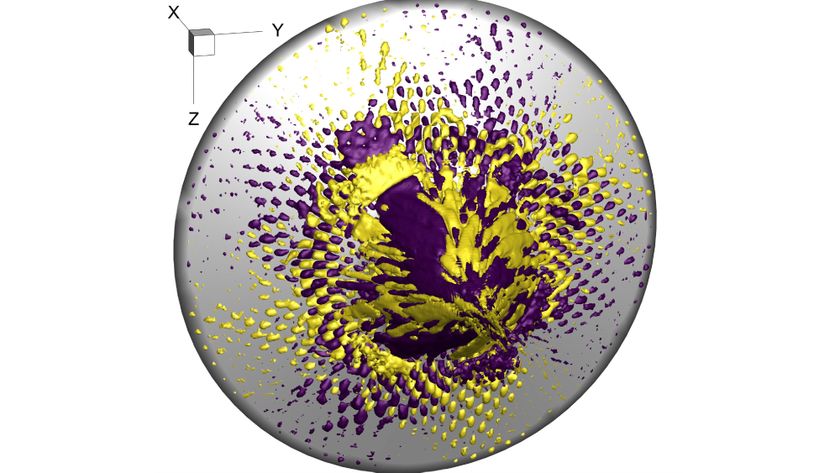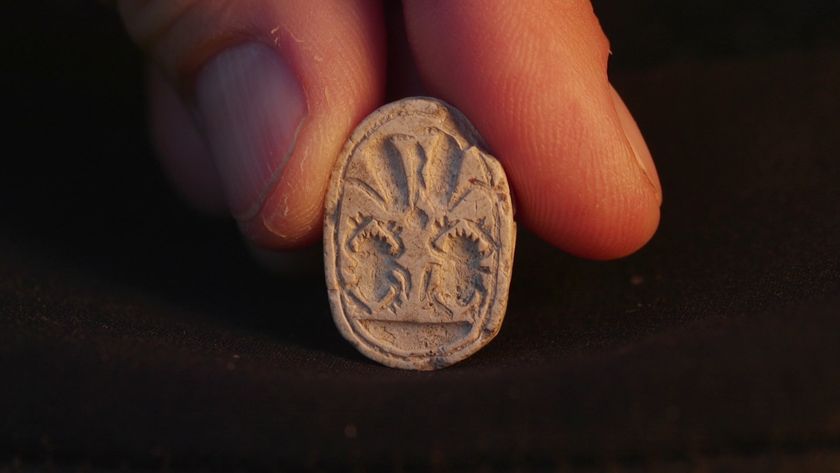Foods Made of Beetles Now Must Say So
The U.S. Food and Drug Administration will have you seeing red this year, but this time it's a good thing.
Since Jan. 5, the FDA has required food manufactures to disclose whether red cochineal beetles are among their products' ingredients. These beetles are farmed, harvested, dried and crushed to produce a red dye called carmine that, until this year, had been disguised in the ingredient list as "artificial color," "color added" or the all-encompassing "natural and artificial coloring."
Carmine provides pink, red and purple coloring to foods such as ice cream, yogurt, candy, and fruit drinks (should you permit that last one to be categorized as a food). Because of lax labeling laws, the extent of carmine in foods and drinks is not known.
Not that eating insects is necessarily gross. People around the world enjoy snacking, quite knowingly, on crickets, grasshoppers and ants, among many other bug-like creatures. And, really, God knows what crawfish are.
At issue is ambiguity in product labeling. "Natural and artificial coloring" means precious little. Why not just say that the food product contains "stuff" and call it a day? For example: Cheez Whiz? It contains a cheese-like substance and stuff. [Read: FDA Working to Replace Misleading Food Labels]
Clarity in color
The problem, of course, is that many of us would like to know more about what stuff is in the stuff. Some people are highly allergic to cochineal extract and its primary chemical ingredient, carminic acid. The coloring has been tied to dozens of cases of anaphylactic shock and near-death, according to the Center for Science in the Public Interest (CSPI), which petitioned the FDA way back in 1998 to require clearer labeling for cochineal-infused foods.
Sign up for the Live Science daily newsletter now
Get the world’s most fascinating discoveries delivered straight to your inbox.
Vegetarians, kosher-conscious Jews and halal-conscious Muslims also stood to benefit from knowing about the deliberate presence of an insect in their food.
So the lightning-fast FDA swooped into action. Nearly 13 years after CSPI's petition, the FDA now requires manufacturers selling foods "that contain cochineal extract or carmine specifically declare the presence of the color additive by its respective common or usual name, 'cochineal extract' or 'carmine,' in the ingredient statement of the food label." A similar rule applies to cosmetics, such as lipsticks, also effective Jan. 5.
Safer chemicals?
Carmine also is known commercially as Red 4. Unfortunately, many consumers confuse this with the far more common Red 40, as evidenced in the latter's nickname: "beetle juice." Red 40, called Allura Red AC in the food industry, is in really, really red foods and drinks such as Hawaiian Punch, and it is not an animal product.
Yes, vegetarians can breathe a sigh of relief that Red 40 comes from yummy, all-natural, organic petroleum, not beetles.
This brings us to the bigger question: Which is worse, natural or artificial food dyes? You may want to simply avoid food and drinks that glow in the dark.
- 7 Foods Your Heart Will Hate
- Top 10 Good Foods Gone Bad
- 7 Diet Tricks That Really Work
Christopher Wanjek is the author of the books "Bad Medicine" and "Food At Work." His column, Bad Medicine, appears regularly on LiveScience.

Christopher Wanjek is a Live Science contributor and a health and science writer. He is the author of three science books: Spacefarers (2020), Food at Work (2005) and Bad Medicine (2003). His "Food at Work" book and project, concerning workers' health, safety and productivity, was commissioned by the U.N.'s International Labor Organization. For Live Science, Christopher covers public health, nutrition and biology, and he has written extensively for The Washington Post and Sky & Telescope among others, as well as for the NASA Goddard Space Flight Center, where he was a senior writer. Christopher holds a Master of Health degree from Harvard School of Public Health and a degree in journalism from Temple University.











